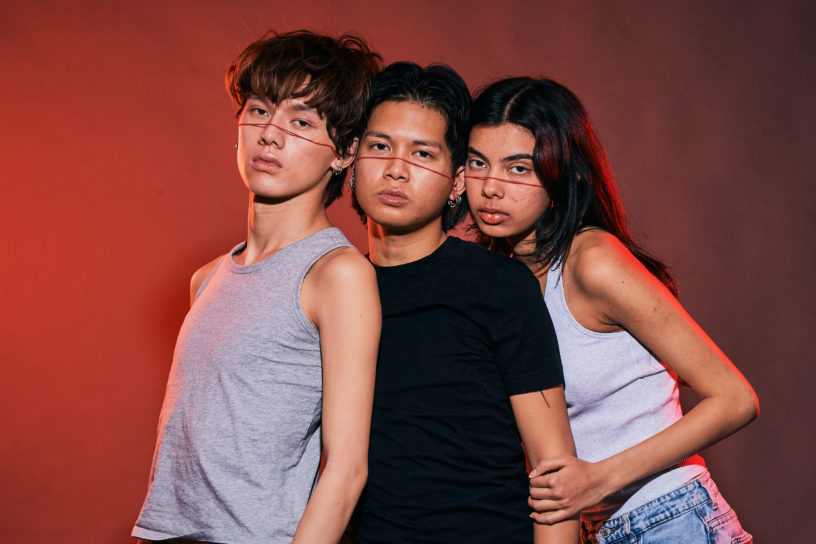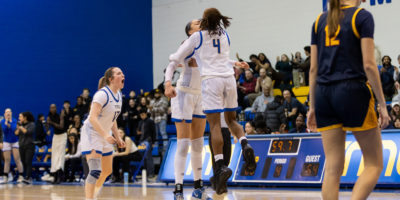By Lucy Kebirungi
Losing meaningful relationships—whether due to heated discourse or simply growing apart—is something many people face. However, the grief that comes along with this process is more often associated with romantic breakups rather than the loss of platonic relationships. In reality, losing a friend can be just as painful—if not more so—than losing a romantic partner.
According to research by Beverly Fehr, a social psychology professor at the University of Winnipeg, people felt more comfortable pulling away from friendships when conflict arose. However, individuals found it easier to settle disputes with open communication in romantic relationships. This often leads to ambiguity towards the end of relationships, leaving many blindsided.
It was sort of hurtful in a way, especially because this was someone who I spent a lot of my time with
Gillian Bedford, a third-year graphic communications management student at Toronto Metropolitan University (TMU), was left feeling this way last summer after one of her high school friends gradually stopped contacting her.
The two had been close friends throughout their teenage years, forming a close bond after learning they had attended the same summer camp when they were younger. Their relationship grew stronger as they spent more time together, both in and outside of school.
However, Bedford came to find that leaving high school and moving away from each other challenged their relationship.
“We wouldn’t really talk to each other when we were at university because we were busy with our own things,” she said, adding they didn’t speak much other than when they both were in their hometown.
Meeting mostly during reading weeks and summer breaks, the two fell into a habit of keeping in contact periodically, though that came to a standstill last summer. Bedford reached out on a day they had agreed to meet but was left with no answer.
“I tried continuously reaching out to her and getting no response,” she said. “It was sort of hurtful in a way, especially because this was someone who I spent a lot of my time with.”
This lack of contact carried on for weeks—with no explanation given. Bedford attempted to reach out using different platforms but was left with no answer. The silence was deafening.
Reflecting on that moment now, Bedford believes the pain was similar to a romantic breakup. “You go from having someone in your life that you’re seeing super frequently and that you’re in touch with to then almost going to being like strangers.”
Eventually, though she grieved the relationship, she grew past it—despite getting no closure from the abrupt end. While it was painful to move on, she strengthened other relationships around her and leaned on them for support. Bedford was able to grow from this loss, cherishing memories but reminding herself to, “Not dwell on [them] for too long because that’s how you end up getting more hurt.”
Fortunately, closure can heal old relationships, allowing friends to build new bridges and cross them together.
Alex Chen, a second-year fashion student, rekindled a lost friendship after reaching out to them. Like Bedford, the two slowly drifted apart once Chen left their hometown of Markham to live in downtown Toronto last fall.
Once situated in TMU’s residence, Chen noticed their friend became more protective of them. They developed minor disagreements on Chen’s ability to lie to their parents and friends regarding getting piercings, experimenting with cannabis and exploring dating apps—which “started building up a lot of resentment between us.”
“It felt like I was being controlled. I decided to just stop the friendship,” Chen said, “I think we shouldn’t be as close as we are because I feel like this is…deteriorating the both of us,” they recalled telling their friend.
Chen ended their relationship in March, which was particularly difficult given how close they had become. Through thick and thin, Chen’s friend was “almost like a sibling to me.” They said cutting off the bond hurt them deeply, affecting their sleep, day-to-day life and existing relationships.
Since the two shared a lot of friends, an unspoken divide developed within their circles, making them feel as though they “had to pick and choose which friends would be on my side and which friends would be on their side.”
Months went by, leaving the two friends distressed. Chen noticed that while talking to others about the situation relieved some of the stress, thinking about their friend made the grieving process harder. This stalemate continued until November, following heavy reflection from both of them. Chen reached out after learning from mutual friends that they had moved downtown.
While their first conversation after reuniting was initially stiff, they gradually found their footing. After roughly four hours of quietly shed tears and hushed conversation in the back of a boba shop, the two agreed that a lack of communication tore them apart—but they were willing to fix it.
“We set boundaries and everything about the friendship to make sure that nothing from before happened again,” Chen said. “I think there was a lot of…internal resentment that I [could] sense. But I don’t really sense it as much anymore because I know that they are willing to communicate with me.”
In some cases, one specific event can lead to the downfall of a friendship. Second-year business management student Michaela Callender recalls losing a close friend this way during their final year of high school.
Callendar grew close with their friend in ninth grade but they knew each other for years—meeting back in elementary school. The two encouraged each other, whether it was by sharing snacks during a bus ride to Dryden, Ont. with their high school’s football team or navigating the mystery that was high school together.
Both driven and passionate, Callender and her friend found familiarity in one another. Like most friendships, the two bumped heads occasionally, then would return to normal. However, one conflict was different from the rest, shaking the core of their relationship. Following an argument, Callender’s friend took matters too far and refused to apologize.
Rather, she criticized Callender’s reaction to the argument, referring to her as sensitive and aggressive, something that was especially painful to hear as a person of colour. “And she wasn’t Black also,” said Callender, “So, the aggressive comment kind of made me feel some type of way.”
Grief is not just the loss of a human being physically within life, it’s also losing that connection.
The comment stung but a lack of a proper apology was the straw that broke the camel’s back. Callender recalls feeling deeply upset. “This is supposed to be like my best friend, right?” she said. “Why [are] there so many hurtful things being said?” Feeling confused and distressed, Callender pulled away, making an effort only to go to school when they needed to.
Luckily, their mother provided support while they were dealing with the loss. Their mom allowed them to grieve the relationship in full, which allowed them to take the steps to grow past the loss. Reflecting on the nature of the relationship and the falling out “really opened [their] eyes” to how extensive grief can be.
“I was grieving a person. I was grieving a friend,” Callender shared. “Grief is not just the loss of a human being physically within life, it’s also losing that connection.”
Learning this allowed them to mourn the connection—applying the lessons learned to new relationships they’d eventually form.












Leave a Reply